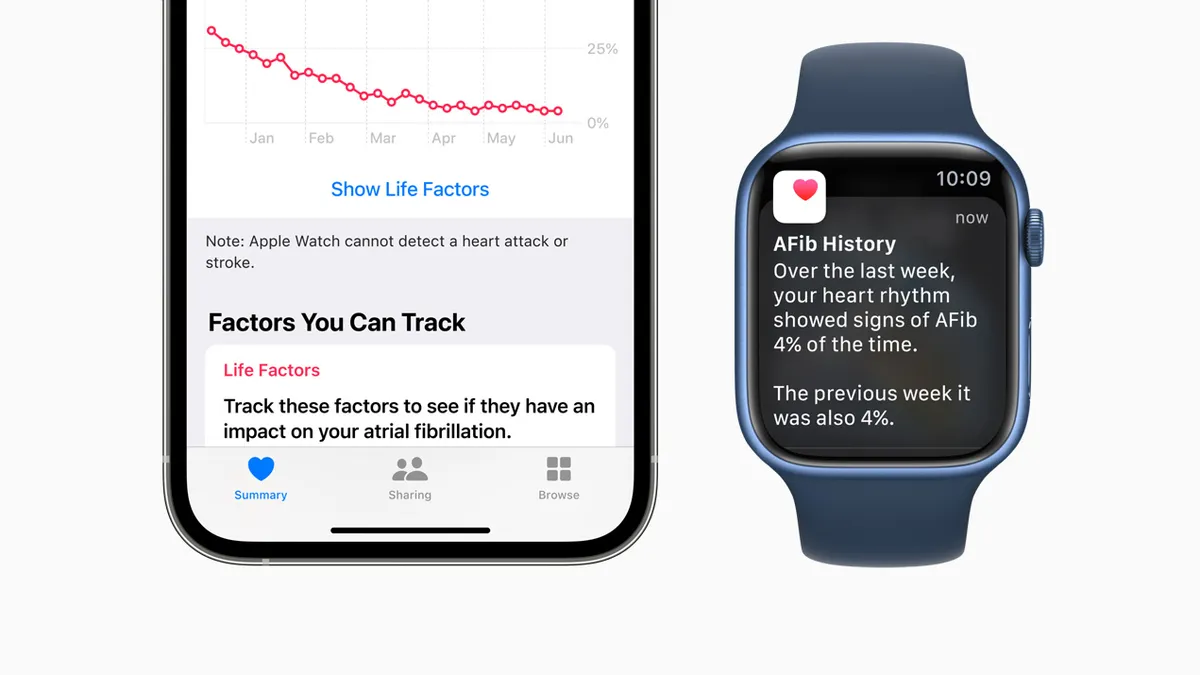Dive Brief:
- The U.S. Patent Trial and Appeal Board has ruled against AliveCor in its dispute with Apple over technology for detecting cardiac conditions.
- Apple filed a petition for a review of 30 claims of an AliveCor patent that covers medical devices and methods for detecting cardiac conditions. Both companies sell products that detect atrial fibrillation.
- The board ruled that all 30 claims are unpatentable because they are obvious in view of other patents, boosting Apple ahead of a potential ban on Watch imports from a related dispute.
Dive Insight:
AliveCor made the early running in the wearable consumer cardiac monitoring space, selling a wristband accessory that enabled Apple Watch to capture electrocardiograms and detect atrial fibrillation. Apple then rendered the accessory obsolete for later Watch models by incorporating ECG capabilities into the device itself.
In 2020, AliveCor sued Apple, setting in motion a series of events that culminated in the ruling of the U.S. Patent Trial and Appeal Board this week. The ruling went against AliveCor.
“Considering all the art and argument of record, and the level of ordinary skill in the art, we agree with [Apple] that ‘after an ECG is measured, it would have been obvious to confirm arrhythmia detection using a machine learning algorithm based on the PPG data, motion sensor data, and/or ECG data’,” the patent judges wrote.
The judges concluded that someone with ordinary skills in the field would have regarded the claims that AliveCor patented as obvious given the intellectual property that already existed. Effectively, AliveCor, in the view of the judges, applied a new patent to advances that had already been made and patented.
AliveCor sees things differently, arguing that an earlier patent, which was key to Apple’s case, refers to “irregular heart conditions” rather than arrhythmias specifically. The judge reached a different conclusion. Apple has sued AliveCor in Federal Court, while AliveCor has a complaint against Apple pending before the International Trade Commission.









